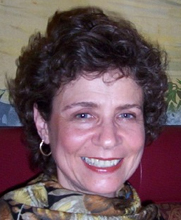 |
|||||||||||||||||||||||||||||||||||
|
|||||||||||||||||||||||||||||||||||
|
|||||||||||||||||||||||||||||||||||
|
Questions & Answers - December 2002
I live in Canada and recently read an article you wrote and thought you may be able to incorporate this concept for other caregivers. There is a business size card issued to all caregivers by our local Alzheimer’s Society. This card definitely helps when confronting either a new or reminding old contacts about the person with Alzheimer’s without embarrassing him or her. The card says, “My companion has a brain disorder that results in communication difficulties and his/her behavior may not seem appropriate at times. Thank you for your understanding”. I hope this is helpful. Thank you for writing and sharing this information. This card can be obtained in Canada by contacting your local Alzheimer Society or the national organization at 20 Eglinton Avenue, W., Suite 1200, Toronto, ON 1K8; 800-616-8816 (in Canada only); www.alzheimer.ca. The Alzheimer’s Association in the U.S. also has a similar card that says, “Please be patient…The person with me has Alzheimer’s disease and may require a few extra moments. Thank you for understanding.” Contact your local Alzheimer’s Association or the national organization at 919 N. Michigan Avenue, #1000, Chicago, IL 60611; 800-272-3900; www.alzheimers.com. God Bless. Mary * * * Dear Mary, I’m very concerned about him. His color is gray and even with oxygen he’s short of breath. He also isn’t eating. I think he should be in the hospital but the doctor disagrees. I’m a nervous wreak, what can we do at home to help him? Has the physician talked to him and the family about his prognosis? My experience has been that many physicians are reluctant to give a prognosis even in a situation where no more can be done. This only adds to the patient’s and family’s stress, as the unknown can be more frightening than the known. If your father isn’t expected to recover Hospice care should be ordered and started right away. A heart to heart talk with your father’s doctor is in order, so call him today. It’s the compassionate physician who talks to families about end of life care. .God Bless Dear Mary,
It is illegal to reprint articles, in any format (including emails, websites, etc.), without explicit written permission from the author of this article and / or Empowering Caregivers™ |
|||||||||||||||||||||||||||||||||||
|
|
|||||||||||||||||||||||||||||||||||
|
|||||||||||||||||||||||||||||||||||
|
EMPOWERING CAREGIVERS™ is trademarked. All Information on this website is owned by Gail R. Mitchell. This includes but is not limited to the journal exercises, Newsletters and original articles, etc. Permission must be obtained from Gail R. Mitchell for any external use of this material.
© Copyright Gail.R. Mitchell. All rights reserved. |
|||||||||||||||||||||||||||||||||||
